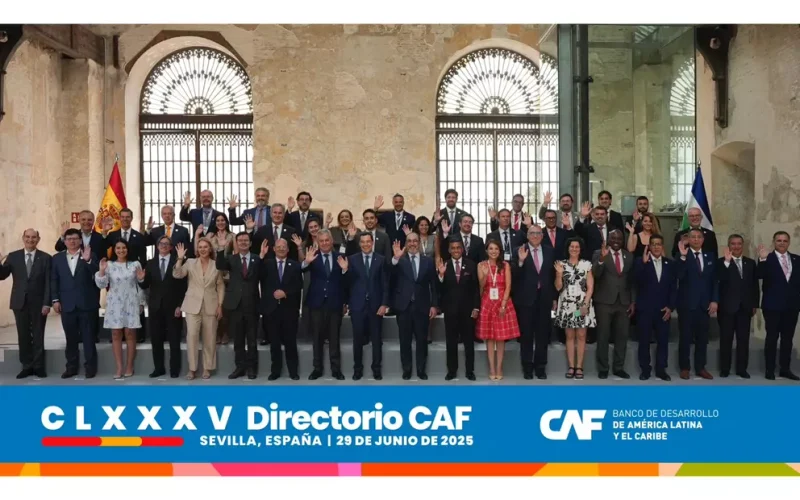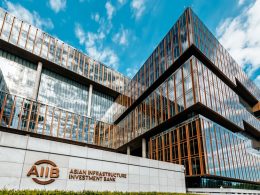The Development Bank of Latin America and the Caribbean (CAF) has approved $5.2 billion in financing for 16 development projects across 10 countries, marking the largest funding package in the bank’s history. The funds will support initiatives in infrastructure, energy transition, climate action, social services, and urban mobility.
The announcement follows a recent meeting of CAF’s Board of Directors and includes new memberships and capital expansions. Guatemala and St. Lucia have begun the process to become shareholder countries, while Barbados has converted to full membership and Antigua and Barbuda has increased its capital contribution.
Approved projects span a range of sectors and countries:
- Chile: $700 million for the second phase of railway network modernization through Empresa de los Ferrocarriles del Estado (EFE).
- Bolivia: $110 million for the Chichas Solar Power Plant to support renewable energy development.
- Argentina: $150 million to improve aqueduct systems in Chubut province.
- Bahamas: $100 million to modernize the electricity sector and promote energy resilience.
- Colombia:
- $350 million for a program on climate action, biodiversity, and sustainable finance.
- $150 million to expand access to mental health services, particularly in rural and underserved communities.
- $240 million to support Aerocivil’s investment plan for air navigation and airport infrastructure.
- $200 million to improve urban mobility in Bogotá under the city’s 2024–2027 development plan.
- Panama: $300 million for sustainable forest management and ecosystem conservation.
- Peru:
- $800 million for a national prison system reform and modernization program.
- $500 million for natural gas expansion in Lima and Callao through Cálidda.
- Costa Rica: Up to $500 million approved as a green liquidity line—the first of its kind from CAF.
- Paraguay: Renewal and expansion of a $100 million credit line for SME financing through the Agencia Financiera de Desarrollo.
- Regional:
- $250 million for the Sacyr Group’s sustainable infrastructure investments across CAF member countries.
The financing package reflects CAF’s efforts to address key development challenges in the region, from climate adaptation and clean energy to healthcare access and justice reform. The institution also emphasized the importance of partnerships with governments and private sector actors to accelerate implementation.
While CAF did not elaborate on specific disbursement timelines, it noted that the approved operations align with its broader mandate to support sustainable development, improve infrastructure, and strengthen regional integration.





















